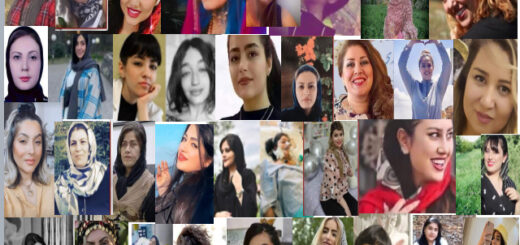Honor killing under the pretense of “honor”: reproducing patriarchy from home to society, murder over a virtual connection
By: Rezvan Moghaddam
A 17-year-old boy in Mashhad killed another boy with 10 knife stabs after seeing a
message and photo from him on his sister phone, a shocking crime at the intersection of
gender-based violence, honor control, and digital illiteracy.
On June 28, 2025, a 17-year-old teenager named Mehdi P. committed a killing in the
city of Mashhad that encapsulates all the elements of an honor-based crime:
uncontrolled rage, a possessive view of women in the family, carrying a knife, trial
without due process, and extreme violence in response to even the slightest sign of a
teenage girl’s emotional connection.
This tragedy occurred when Mehdi, after seeing texts and photos from a neighborhood
boy on his 14-year-old sister’s phone, instead of speaking with her or seeking guidance
from his family, directly confronted the teenage boy and stabbed him more than ten
times.
What’s even more disturbing is that Mehdi, in an interview, stated:
“I myself was in a relationship with a girl and intended to marry her.”
This confession reveals the deep contradiction in honor-based cultures: where a boy’s
relationship with a girl is considered a “right,” but his sister’s connection with another
boy is a capital “crime.”
In Iran and many other countries in the region, the concept of “honor” has been
structurally and dangerously weaponized to control the bodies and behavior of women
and girls. Teenagers raised in this environment, lacking education on human rights,
justice, and conflict resolution, make fatal decisions in moments of rage. The young
killer in this case admitted that he didn’t know the law or the right way to respond.
In his confession, he says he saw the boy’s photo on his social media profile — a clear
symbol of the absence of media literacy and sexual education in schools and families.
Digital space, which could be a platform for education and communication, has in the
absence of formal education become a violent court of judgment and control.
Interview with Mehdi by Khorasan Newspaper:
What is your name? Mehdi P.
What year were you born? 2007
Are you a student? Yes, I was studying in 12th grade (high school).
Where do you live in Mashhad? On Resalat Boulevard, Hematabad
neighborhood.
Did you work during summer breaks? Yes, sometimes I worked in
construction and sometimes at the fruit market.
Why did you commit this crime?
The night before, I grabbed my sister’s phone and saw messages and photos
from a boy. I got “honor-bound” angry and lost control.
Did you know the boy you killed?
No, I had seen him in the neighborhood, but we weren’t acquainted.
How did you know he was the one in contact with your sister?
I saw his photo on his social media profile.
Why did you decide to kill him?
I didn’t even realize what I was doing! I got so angry that I couldn’t think straight. I
went to him the next morning as he was heading to work. I said, “Why are you
bothering someone’s honor?” He replied, “It’s none of your business.” I said,
“That girl is my sister!” Then I stabbed him.
Are you regretful?
Very much! Now that I’ve been arrested, I realize I made a mistake. I should’ve
thought about the consequences.
What would you have done instead?
I should’ve consulted older people or asked for help to see how to handle such
things.
What were your future plans after high school?
I wanted to join the military and serve in the army.
Were you yourself in a relationship?
Yes, I had recently met a girl.
Then why did you kill someone for being in a relationship with your sister?
I intended to marry the girl I was seeing!
What do you think caused this crime?
First, carrying a knife! If I hadn’t had a knife, maybe this wouldn’t have happened.
But more importantly, we don’t understand how to use digital space or manage
street relationships. I wish someone had guided me!
In this case, the 14-year-old sister remains voiceless. We hear nothing of her wishes,
feelings, or choices, nor do we see any protection or advocacy from legal institutions.
This silencing of women and girls, especially in matters that directly threaten their lives
or those of their loved ones, reflects the deeply patriarchal and violent structure of our
judicial, social, and educational systems.
#StophonorKillingsCampaign
#SafetyForWomen
#WomenHaveTheRightToLive
#NoToViolenceAgainstWomen
#IslamicRepublicIsResponsibleForWomen’sMurders
#honorKilling_Khorasan
#NoToMisogynisticCulture
Follow news in the Stop honor Killings Campaign Telegram group:
https://t.me/stophonorkilling
Support the Stop honor Killings Campaign with Your Donations via PayPal:
https://paypal.me/stophonorkillings?country.x=US&locale.x=en_US
Stop honor Killings Campaign


















